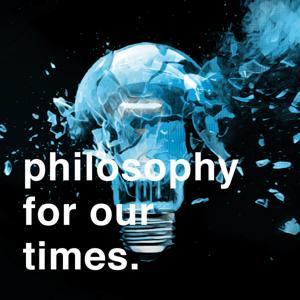In the beginning, there was nothing but air. The supreme being breathed upon it, and the air became water. Air and water moved together, forming mud. Seeing its shape, the supreme being breathed again – and life began.
Today, we'll be exploring this creation story – born of Afro-Brazilian philosophy – forged under conditions of extreme violence, displacement, and resistance. During the transatlantic slave trade, more than four million Africans were forcibly taken to Brazil – far more than were sent to the United States. They brought with them their gods, their rituals, and their philosophies. Despite sustained efforts to suppress them, these traditions not only survived, but developed into sophisticated systems of thought that remain living practices today.
We'll be exploring these traditions with José Eduardo Porcher Assistant Professor of Philosophy at the Federal University of Rio Grande do Sul in Brazil. José is currently Director of the Spiritual Realities, Relationality, and Flourishing: Brazilian Contributions to Philosophy of Religion project, and has been centrally involved in a number of major research initiatives examining alternative approaches to philosophy of religion – including the John Templeton funded project Expanding the Philosophy of Religion by Engaging with Afro-Brazilian Traditions.
In this episode, we'll explore the Afro-Brazilian religious tradition of Candomblé: its account of creation, its distinctive conception of God and the deities, and its striking vision of a world enchanted by a vital life-force that flows through people, objects, nature, and the divine. We'll ask what it means to live in a world where gods possess human bodies, where objects can be sacred, and where divinity is powerful yet limited. And we'll consider what these traditions might teach us about evil, responsibility, nature, and how to live well in a world that is far stranger than Western philosophy ever thought.
This episode is produced in partnership with The Global Philosophy of Religion Project at University of Birmingham, funded by the John Templeton Foundation.
Links
José Eduardo Porcher, Webite
José Eduardo Porcher, Afro-Brazilian Religions (Book)




































